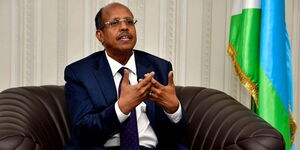The government is now committed to privatising state-owned companies in order to raise money and boost the economy, having found that fiscal consolidation is not a sustainable long-term solution.
On Monday, August 11, Treasury Cabinet Secretary John Mbadi informed Members of Parliament that similar budget-cutting measures applied in the past three years could no longer be pursued. Instead, the focus will shift towards privatisation as a means of stimulating the economy.
One of the first steps will be to sell part of the government's shares in the Kenya Pipeline Company (KPC) by listing the company on the Nairobi Securities Exchange (NSE), which will allow Kenyans and investors to purchase shares.
The privatisation of KPC is seen as a crucial step in ensuring that the company reaches its full potential. Despite the company generally being profitable, the Cabinet noted that government control tended to stifle maximum performance.
“Since we’ve done all we can with budget cuts, we now need a new strategy to grow the economy,” Mbadi explained.
The government's bigger plan is to raise Ksh149 billion by the end of June 2026 through the sale of shares in different state-owned firms.
According to Mbadi, the goal was to reduce the need for more government borrowing, control the country's debt and manage future budget deficits.
Incidentally, the privatization move came as Kenya prepares for fresh talks with the International Monetary Fund (IMF) to agree on a new financing program.
The previous deal with the IMF was cut short since Kenya struggled to meet various targets, including reducing its fiscal deficit and increasing revenue-raising measures.
In recent months, Kenya also attempted to raise funds by introducing new levies on everyday items, but these proposals sparked widespread protests in 2024, prompting the government to restrategise.
Despite the fact that some tax measures were passed in December, the backlash was a stark indicator that tax hikes may not be the most plausible solution going forward.
During the same meeting, Mbadi also emphasised that privatisation was different from taxation since it does not take money out of people's pockets. Instead, it encourages investment and helps businesses grow. In the long run , this increases the amount of taxes the government collects without necessarily introducing new levies.
Meanwhile, a team from the IMF is expected in Kenya next month to review the country’s economic progress and begin discussions on the new financial arrangement.












